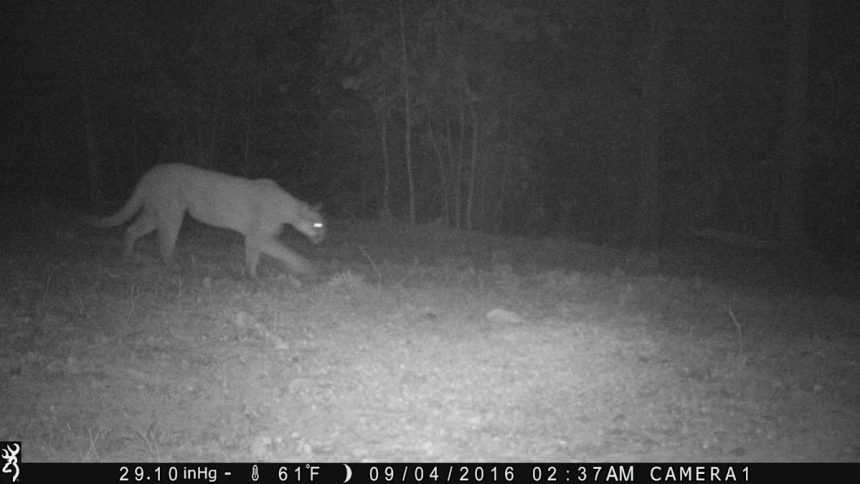Just like your housecat has its own mind about whether you own it, Tennessee doesn’t exactly “have” cougars.
Cougars, also known as mountain lions or pumas, were once abundant across Tennessee and much of North America before European settlers arrived, hunting or displacing many large animals: deer, turkeys, buffalo and mountain lions among them.
While deer and turkeys have since rebounded, cougars and buffalo have not reestablished themselves in the region, said Tennessee Wildlife Resources Agency species support biologist Joy Sweaney.
“We really just have one,” Sweaney said.
One solitary male cougar crossed in and out of Tennessee from 2015 to 2016 often enough for experts to clock 10 confirmed sightings. Like a tabby lingering at the threshold, his path wavered in and out of the state, never quite settling.
Because Tennessee law protects all animals for which no hunting season is proclaimed, cougars are protected in Tennessee.
Evidence of the cat was collected mostly from deer hunters’ game cameras. Its path began in northwestern Tennessee and drifted south over the course of a year. The male’s last known location was Perry County, west of Nashville.
This wasn’t a casual stroll. It was what biologists call a “transient male,” a wild wanderer looking for a place to call his own.
“Because populations of cougars out west of the Mississippi River are doing well, they have huge home ranges,” Sweaney said. “And so the way their kind of social construct goes is the males go on kind of a quest to find their own home turf.”
Some have been documented traveling from as far as South Dakota to Connecticut, she said.
The reason they don’t put down roots? They’re searching for the sweet spot — female cougars without any male competition nearby. So far, Tennessee isn’t that place. But since western cougar populations are healthy and expanding eastward, experts said it’s a matter of when, not if, the Volunteer State sees another transient cougar.
For now, sightings are so rare that seeing one would be a miracle, Sweaney said. Even in states where cougars breed, such as Colorado or California, human conflict with the animals is rarer than being struck by lightning.
“They are secretive and very good at staying hidden,” she said.

The Tenn. Wildlife Resources Agency confirmed a cougar sighting on Sept. 20, 2015, in Obion County, Tennessee, through this partial photo captured by a hunter’s camera.
More: How to identify a brown recluse? Spotting and treating bites from ‘fiddleback’ spider
Bobcats thriving in Tennessee
Bobcats, however, are another story. They’re abundant across Tennessee, where they mostly prey on rabbits, squirrels, birds and other smaller animals.

A Tennessee bobcat documented by the state Wildlife Resources Agency.
Cougars are larger and longer than bobcats, and they have longer tails.
In suburban or urban areas, some have even lost their fear of humans after repeated nonthreatening encounters.
“It’s not because they suddenly appeared, they were there all along,” Sweaney said. “They just started to lose their wariness.”
Large predators have an inherent caution toward humans. It takes repeated positive or neutral encounters for that fear to fade, which is why eliminating temptation is the best way to keep them at bay. That means removing deer feeders and other attractants that draw wildlife too close for comfort.
“You don’t want that ecosystem right at your front door,” Sweaney said.
And if you do spot one, don’t panic. Like your cat, it’s just passing through, and it was never really yours to begin with.
Mackensy Lunsford is the senior dining reporter for The Tennessean.
This article originally appeared on Nashville Tennessean: Are there cougars in TN? What to know about the big cats









